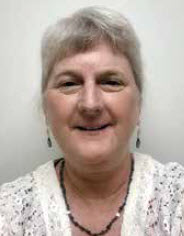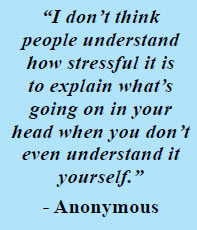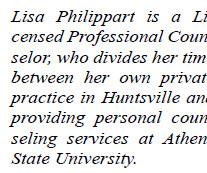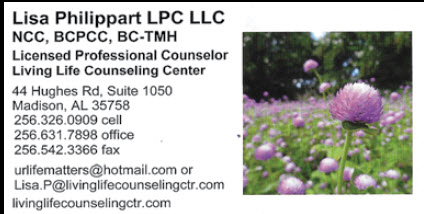 By: Lisa Philippart
By: Lisa Philippart
Note: Please do not use this information to self-diagnose. Consult a professional.
Currently most psychiatrists tend to use a system of diagnosis which identifies ten types of personality disorders. These disorders are grouped into three categories: suspicious, emotional and impulsive, and anxious. Each personality disorder has its own set of diagnostic criteria. To get a specific diagnosis, you must meet some of the criteria, and the minimum amount you need to meet is different for different types. If you meet criteria for more than one type this may be called mixed personality disorder. It is also possible to get a diagnosis without meeting the full criteria for a specific type. This is known as personality disorder not otherwise specified. Understanding what it means to experience a personality disorder is constantly evolving. Assigning a personality disorder can be a controversial diagnosis. The important thing to remember is that the feelings and behaviors associated with personality disorders are very difficult to live with. However you understand your diagnosis, and whatever terms you prefer to use, you deserve understanding and support.
 In this article, we will take a look at the three types of disorders that fall under the suspicious category. These are paranoid, schizoid, and schizotypal personality disorders. The thoughts, feelings, and experiences associated with paranoid personality disorder may cause you to find it hard to confide in people, even your friends and family. You may find it difficult to trust other people, believing they will use you or take advantage of you. Because of this high level of constant mistrust, you may have problems relaxing. Your system is on constant high alert, which can be exhausting. You may also read threats and danger (which others don’t see) into everyday situations. Innocent remarks or casual looks from others are viewed with suspicion. If this has become a problem for you and is interfering with your activities of daily living, you may fit the criteria for paranoid personality disorder.
In this article, we will take a look at the three types of disorders that fall under the suspicious category. These are paranoid, schizoid, and schizotypal personality disorders. The thoughts, feelings, and experiences associated with paranoid personality disorder may cause you to find it hard to confide in people, even your friends and family. You may find it difficult to trust other people, believing they will use you or take advantage of you. Because of this high level of constant mistrust, you may have problems relaxing. Your system is on constant high alert, which can be exhausting. You may also read threats and danger (which others don’t see) into everyday situations. Innocent remarks or casual looks from others are viewed with suspicion. If this has become a problem for you and is interfering with your activities of daily living, you may fit the criteria for paranoid personality disorder.
Many people with schizoid personality disorder are able to function fairly well. Unlike schizophrenia or schizoaffective disorder, you would not usually have psychotic symptoms. However, as a result of the thoughts and feelings associated with this diagnosis, you may find difficulty in forming close relationships with other people, choosing to live your life without interference from others. With this type of personality disorder you may prefer to be alone with your own thoughts and fantasies, and unable to experience pleasure from usually enjoyable activities. You many have difficulty relating to or are emotionally cold towards others. You may be seen as a loner or dismissive of others. Aloof, cold, detached are words often used to describe someone with this type of personality disorder.
 Everyone has his/her own peculiarities or awkward behaviors. But if your patterns of thinking and behaving make relating to others difficult, you may meet the criteria for schizotypal personality disorder. While those with schizotypal personality disorder may experience brief psychotic episodes, they are not as frequent or intense as those struggling with schizophrenia; and with this personality disorder, they can usually be made aware of the difference between their distorted ideas and reality. Characteristics and symptoms include presenting with distorted thoughts or perceptions. This makes it challenging to find and make close relationships. You may think and express yourself in ways that others find odd, peculiar, or eccentric, using unusual words or phrases, which make relating to others difficult. You may also believe that you can read minds or that you have some kind of supernatural or special powers, such as a “sixth sense.” Because of your difficulty in connecting with others, you may feel anxious and tense with those who do not think as you do. Social situations are extremely stressful. In my next article, we will take a look at the emotional and impulsive category of personality disorders.
Everyone has his/her own peculiarities or awkward behaviors. But if your patterns of thinking and behaving make relating to others difficult, you may meet the criteria for schizotypal personality disorder. While those with schizotypal personality disorder may experience brief psychotic episodes, they are not as frequent or intense as those struggling with schizophrenia; and with this personality disorder, they can usually be made aware of the difference between their distorted ideas and reality. Characteristics and symptoms include presenting with distorted thoughts or perceptions. This makes it challenging to find and make close relationships. You may think and express yourself in ways that others find odd, peculiar, or eccentric, using unusual words or phrases, which make relating to others difficult. You may also believe that you can read minds or that you have some kind of supernatural or special powers, such as a “sixth sense.” Because of your difficulty in connecting with others, you may feel anxious and tense with those who do not think as you do. Social situations are extremely stressful. In my next article, we will take a look at the emotional and impulsive category of personality disorders.
By: Lisa Philippart
Licensed Professional Counselor










 June 20, 2025
June 20, 2025



